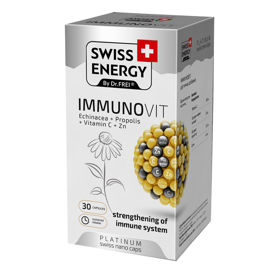Vprašanje stranke:
Koliko časa traja zdravljenje virusne angine? Vprašanje anonimne stranke
Odgovor farmacevta:
Trajanje zdravljenja virusne angine je odvisno od več dejavnikov, vključno z vrsto virusa, ki povzroča okužbo, resnostjo simptomov, splošnim zdravstvenim stanjem posameznika in odzivom na zdravljenje. Na splošno se virusna angina, tako kot večina virusnih okužb, reši sama od sebe v nekaj dneh do enega tedna. Virusna angina običajno doseže vrhunec v prvih nekaj dneh okužbe, ko so simptomi najhujši.
Ta faza lahko traja od nekaj dni do približno enega tedna. Po akutni fazi se simptomi virusne angine običajno postopoma izboljšujejo. Telesna temperatura se lahko normalizira, bolečina v grlu se zmanjša, oteklina mandljev se zmanjša in splošno počutje se izboljša.
Čeprav se večina ljudi počuti bolje v nekaj dneh do enega tedna, se lahko nekateri simptomi, kot je izčrpanost, suh kašelj ali rahlo vneto grlo, lahko zadržijo še nekaj časa. Pomembno je omeniti, da se lahko pri nekaterih ljudeh simptomi virusne angine lahko zadržijo dlje ali pa se lahko razvijejo zapleti, kot je sekundarna bakterijska okužba. Če simptomi virusne angine trajajo dlje časa ali se poslabšajo, je priporočljivo, da se posvetujete z zdravnikom z namenom, da izključite druge možne vzroke simptomov in prejmete ustrezno zdravniško oskrbo. Preverite več tudi o angini pektoris.
Ali virusna angina lahko povzroča zaplete?
Da, virusna angina lahko v nekaterih primerih povzroči zaplete. Čeprav so virusi običajno manj verjetno povzročitelji zapletov kot bakterije, lahko pri nekaterih ljudeh pride do resnejših zapletov zaradi virusne angine.
Nekateri možni zapleti virusne angine vključujejo:
- Bakterijske superinfekcije: čeprav virusi običajno povzročajo virusno angino, se lahko včasih pojavi sekundarna bakterijska okužba, kot je bakterijski sinusitis, bakterijski bronhitis ali bakterijska pljučnica.
- Reaktivni artritis: pri nekaterih ljudeh lahko virusna angina sproži vnetje sklepov, znano kot reaktivni artritis. Ta pogoj lahko povzroči bolečine v sklepih, otekanje in včasih tudi vnetje oči ali sečil.
- Peritonzilitis: to je vnetje tkiva okoli tonzil, ki se lahko pojavi kot zaplet virusne angine. Simptomi vključujejo hudo bolečino v grlu, otekanje vratu in težave pri požiranju.
- Glomerulonefritis: čeprav je glomerulonefritis pogosteje povezan s streptokokno angino, se lahko v nekaterih primerih pojavi tudi kot zaplet virusne angine. To je vnetna bolezen ledvic, ki se lahko pojavi nekaj tednov po okužbi z virusom.
- Revmatična vročina: čeprav je ta zaplet pogostejši pri streptokokni angini, se lahko v nekaterih primerih pojavi tudi po virusni angini. Revmatična vročina lahko prizadene srce, sklepe, kožo in centralni živčni sistem.
Ali se virusna angina zdravi samo z antibiotiki?
Ne, virusna angina se vsekakor ne zdravi z antibiotiki, saj so antibiotiki učinkoviti le proti bakterijskim okužbam, ne pa tudi proti virusnim okužbam. Ker je virusna angina posledica virusne okužbe, antibiotiki niso primerno zdravilo za to stanje. Zdravljenje virusne angine običajno vključuje simptomatsko terapijo, namenjeno lajšanju simptomov in spodbujanju okrevanja.
Pomembno je, da si vzamete dovolj časa za počitek, da vaše telo dobi priložnost za okrevanje. Prav tako je pomembno, da ostajate hidrirani, saj lahko pitje dovolj tekočine pomaga pri razredčevanju sluzi, lajšanju bolečine v grlu in spodbujanju izločanja toksinov iz telesa. Uporaba protibolečinskih zdravil, ki vsebujejo paracetamol ali ibuprofen, lahko pomaga pri lajšanju bolečine v grlu, znižanju telesne temperature in splošnem počutju.
Izpiranje ust s toplo slano vodo lahko prav tako pomaga pri zmanjšanju vnetja in lajšanju bolečine v grlu. Nanašanje hladnih obkladkov na zunanji del vratu lahko pomaga zmanjšati oteklino in nelagodje. Vlažen zrak lahko pomaga pri blaženju suhega in dražilnega grla. Uporaba vlažilnika zraka ali vlaženje zraka s pomočjo pare lahko pomaga pri lajšanju nelagodja. Če simptomi virusne angine trajajo dlje časa ali se poslabšajo, se posvetujte z zdravnikom.
Zanimivo branje: Gnojna angina
Zanimivo branje: Znaki Angine








 Facebook
Facebook
 Instagram
Instagram
 info@moja-lekarna.com
info@moja-lekarna.com

